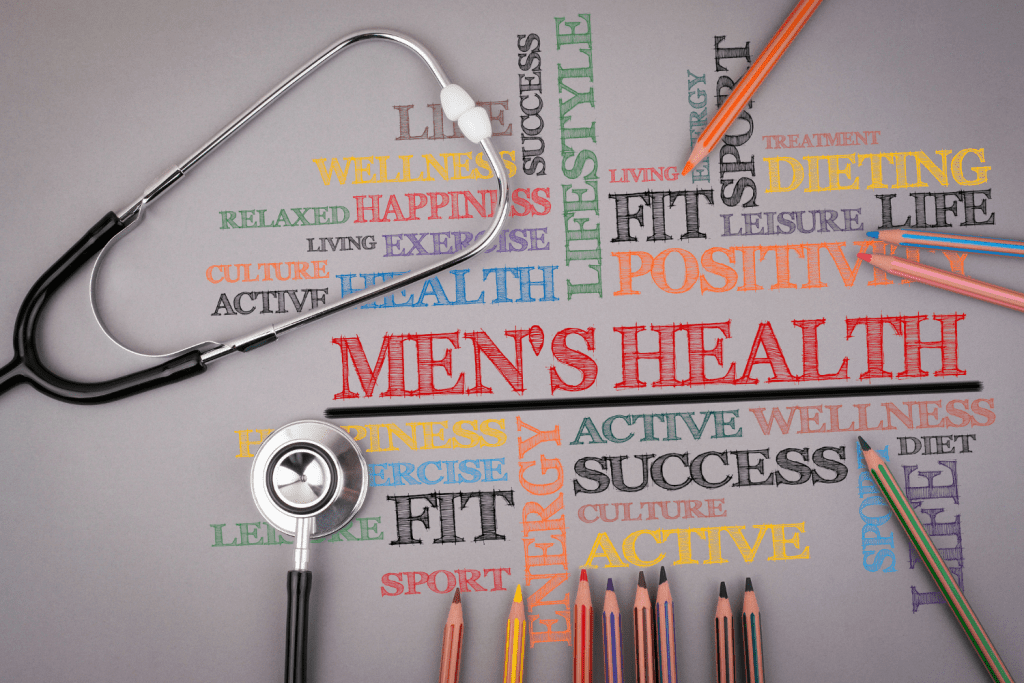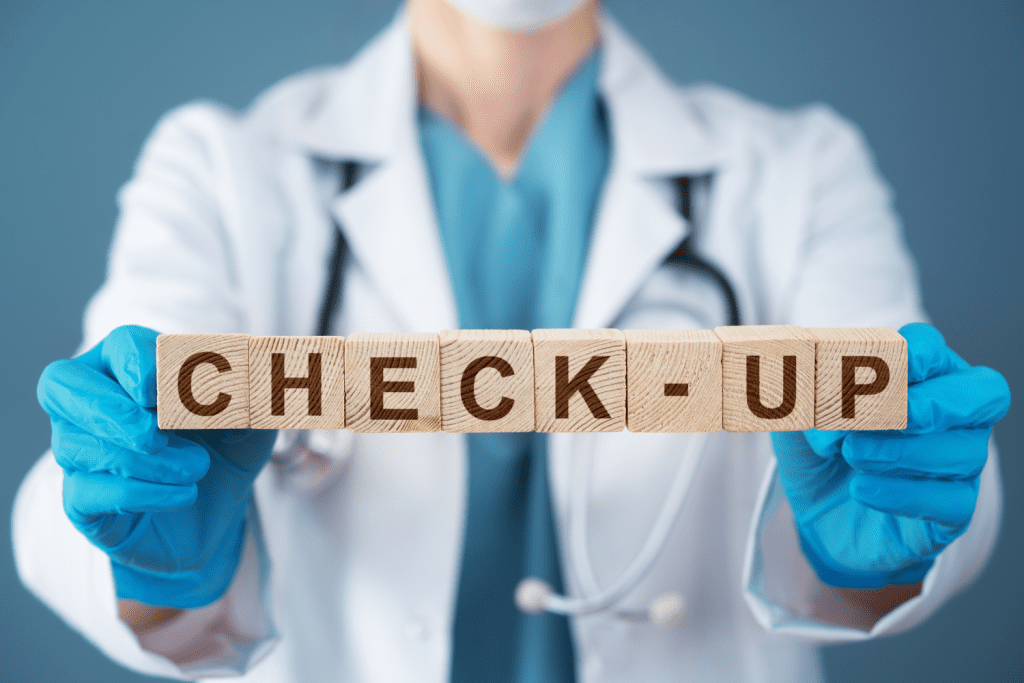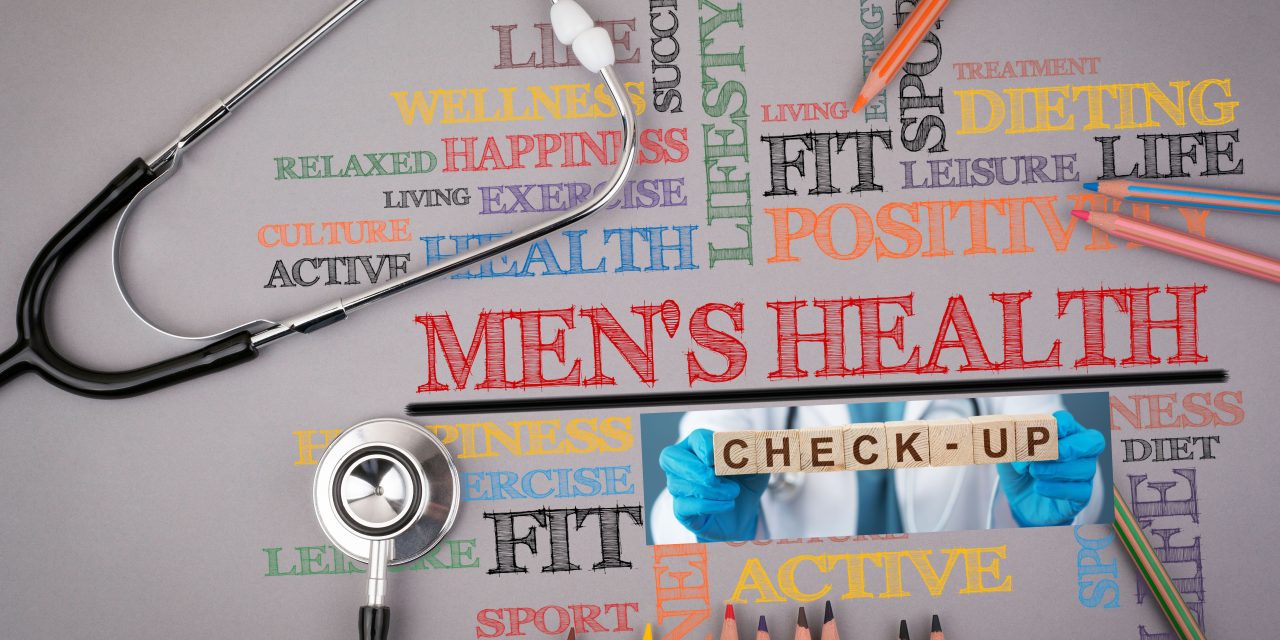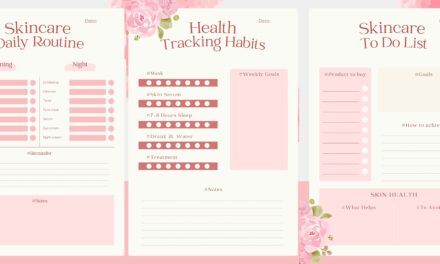Introduction of Men’s health checkup
As a man, your health is your wealth. In this article, we’ll provide you with a comprehensive guide on Men’s health checkup, including their importance, recommended frequency, and tests. Taking good care of your health and getting regular checkups can help you detect any potential health problems early, allowing you to take preventive measures and enjoy a healthier and longer life.
Why Are Men’s Health Checkups Important?
Men’s health checkups are essential for several reasons:
Early Detection of Health Issues
Regular checkups can help detect potential health problems before they become serious, such as high blood pressure, diabetes, cancer, and heart disease. Early detection allows you to take preventive measures and avoid further complications.
Preventive Care
Regular checkups are a form of preventive care. They help you maintain good health, prevent future health problems, and manage any existing conditions.
Better Management of Chronic Conditions
If you have a chronic health condition, such as diabetes or hypertension, regular checkups can help you manage your condition better. Your doctor can adjust your medications, lifestyle, and other treatments to ensure that your condition is under control.
How Often Should Get a Men’s Health Checkup?

The frequency of men’s health checkups depends on several factors, such as age, health status, family history, and lifestyle habits. In general, you should get a checkup at least once a year. However, your doctor may recommend more frequent checkups if you have specific health concerns or risk factors.
Here’s a breakdown of the recommended frequency of men’s health checkups by age:
Age 18-39
If you’re between the ages of 18 and 39 and in good health, you should get a checkup every 2-3 years.
Age 40-49
If you’re between the ages of 40 and 49, you should get a checkup every 1-2 years. Your doctor may recommend more frequent checkups if you have risk factors, such as high blood pressure, high cholesterol, or a family history of heart disease or cancer.
Age 50-64
If you’re between the ages of 50 and 64, you should get a checkup every year. Your doctor may recommend more frequent checkups if you have specific health concerns, such as prostate cancer or osteoporosis.
Age 65 and Above
If you’re over 65, you should get a checkup every year. Your doctor may recommend more frequent checkups if you have specific health concerns or risk factors.
What Tests Should Get During a Men’s Health Checkup?

During a men’s health checkup, your doctor may recommend several tests and screenings, depending on your age, health status, and risk factors. Here are some of the most common tests:
Blood Pressure Test
A blood pressure test measures the force of blood against the walls of your arteries. High blood pressure can lead to heart disease, stroke, and other health problems.
Cholesterol Test
A cholesterol test measures the levels of cholesterol and triglycerides in your blood. High cholesterol levels can increase your risk of heart disease.
Blood Glucose Test
A blood glucose test measures the amount of glucose (sugar) in your blood. High glucose levels can be a sign of diabetes.
Prostate-Specific Antigen (PSA) Test
A PSA test is a blood test that measures the levels of PSA in your blood. High PSA levels can be a sign of prostate cancer.
Colorectal Cancer Screening
Colorectal cancer screening can help detect colon cancer early. Your doctor may recommend a fecal occult blood test, sigmoidoscopy, or colonoscopy.
Skin Cancer Screening
Skin cancer screening involves a visual exam of your skin to look for any suspicious moles, freckles, or other skin abnormalities that may be a sign of skin cancer.
Testicular Exam
A testicular exam involves checking your testicles for any lumps or abnormalities that may be a sign of testicular cancer.
Dental Exam
A dental exam is an essential part of your health checkup. Your dentist can detect oral health problems, such as gum disease or tooth decay, and recommend preventive measures or treatments.
Eye Exam
An eye exam can detect eye problems, such as cataracts, glaucoma, or macular degeneration, and recommend treatments or corrective lenses.
Immunizations
Your doctor may recommend immunizations, such as flu shots, pneumonia vaccines, or hepatitis B vaccines, to protect you from infectious diseases.
How to Prepare for a Men’s Health Checkup?
Here are some tips to help you prepare for your men’s health checkup:
Schedule an Appointment
Call your doctor’s office and schedule an appointment for your health checkup.
Make a List of Your Symptoms and Concerns
Make a list of any symptoms or health concerns that you have, so you can discuss them with your doctor during your appointment.
Know Your Family History
Know your family history of health problems, such as heart disease, cancer, or diabetes, as they may increase your risk of developing similar health conditions.
Bring Your Medical Records
Bring any medical records, such as previous test results or medication lists, to your appointment.
Wear Comfortable Clothing
Wear comfortable clothing that allows easy access to your arms and legs for blood pressure and other tests.
Conclusion of Men’s Health Checkup
Regular men’s health checkups are essential for maintaining good health and preventing future health problems. The recommended frequency of checkups depends on several factors, such as age, health status, family history, and lifestyle habits. During a health checkup, your doctor may recommend several tests and screenings to detect potential health problems early. By following these guidelines, you can take charge of your health and enjoy a healthier and longer life.
FAQs
How much does a men’s health checkup cost?
The cost of a men’s health checkup varies depending on your insurance coverage and the tests you need.
Is a men’s health checkup painful?
No, a men’s health checkup is generally painless. Most tests involve simple procedures, such as blood pressure checks or blood tests.
Can I get a men’s health checkup online?
Some healthcare providers offer telemedicine services that allow you to get a men’s health checkup online. However, not all tests and screenings may be available online.
What if I can’t afford a men’s health checkup?
Some community health centers and free clinics offer low-cost or free men’s health checkups to individuals who cannot afford them.
Can I skip my men’s health checkup if I feel healthy?
No, even if you feel healthy, regular checkups are still essential for detecting potential health problems early and maintaining good health.







I?¦m now not sure where you’re getting your info, but great topic. I needs to spend a while studying much more or understanding more. Thanks for wonderful info I used to be searching for this info for my mission.
Great write-up, I am regular visitor of one?¦s web site, maintain up the nice operate, and It is going to be a regular visitor for a lengthy time.
you’re really a good webmaster. The site loading speed is amazing. It seems that you’re doing any unique trick. In addition, The contents are masterwork. you have done a fantastic job on this topic!
Because the site’s administrator is actively working, its reputation will undoubtedly grow rapidly as a result of its excellent material.
Everyone loves it when individuals come together and share ideas.
Great site, stick with it!
Thanks for sharing. I read many of your blog posts, cool, your blog is very good.
I am not sure where you’re getting your information, but good topic.
I needs to spend some time learning more or understanding more.
Thanks for fantastic information I was looking for this information for my mission.
Wonderful beat I wish to apprentice while you amend your web site how could i subscribe for a blog web site The account aided me a acceptable deal I had been a little bit acquainted of this your broadcast provided bright clear idea
Simply wish to say your article is as amazing The clearness in your post is just nice and i could assume youre an expert on this subject Well with your permission let me to grab your feed to keep updated with forthcoming post Thanks a million and please carry on the gratifying work
Hi my family member I want to say that this post is awesome nice written and come with approximately all significant infos I would like to peer extra posts like this
Can you be more specific about the content of your article? After reading it, I still have some doubts. Hope you can help me.
I just could not leave your web site before suggesting that I really enjoyed the standard information a person supply to your visitors Is gonna be again steadily in order to check up on new posts
I loved as much as youll receive carried out right here The sketch is tasteful your authored material stylish nonetheless you command get bought an nervousness over that you wish be delivering the following unwell unquestionably come more formerly again since exactly the same nearly a lot often inside case you shield this hike
Its like you read my mind You appear to know so much about this like you wrote the book in it or something I think that you can do with a few pics to drive the message home a little bit but other than that this is fantastic blog A great read Ill certainly be back
Your point of view caught my eye and was very interesting. Thanks. I have a question for you.
you are truly a just right webmaster The site loading speed is incredible It kind of feels that youre doing any distinctive trick In addition The contents are masterwork you have done a great activity in this matter
Its like you read my mind You appear to know so much about this like you wrote the book in it or something I think that you can do with a few pics to drive the message home a little bit but instead of that this is excellent blog A fantastic read Ill certainly be back
I am glad to be a visitant of this pure website! , regards for this rare info ! .
I don’t think the title of your article matches the content lol. Just kidding, mainly because I had some doubts after reading the article.
I?¦ve been exploring for a little bit for any high-quality articles or weblog posts in this sort of house . Exploring in Yahoo I finally stumbled upon this site. Studying this info So i am satisfied to exhibit that I’ve an incredibly just right uncanny feeling I discovered just what I needed. I so much certainly will make sure to do not overlook this site and give it a look regularly.
It’s hard to find knowledgeable people on this topic, but you sound like you know what you’re talking about! Thanks
Beautifully written and incredibly informative, The post has captured my attention as if it were a love letter written just for me.
You are a very smart person!
Thank you for your sharing. I am worried that I lack creative ideas. It is your article that makes me full of hope. Thank you. But, I have a question, can you help me?
The insights are like keys, unlocking new perspectives and ideas I hadn’t considered.
Your article helped me a lot, is there any more related content? Thanks!
Thank you for your sharing. I am worried that I lack creative ideas. It is your article that makes me full of hope. Thank you. But, I have a question, can you help me?
Noodlemagazine Pretty! This has been a really wonderful post. Many thanks for providing these details.
Noodlemagazine I do not even understand how I ended up here, but I assumed this publish used to be great
Thanks a lot for the article post.Really thank you! Really Great.
There are some fascinating deadlines in this article but I don’t know if I see all of them middle to heart. There may be some validity but I’ll take hold opinion till I look into it further. Good article , thanks and we wish more! Added to FeedBurner as nicely
My wife and i have been really cheerful that John could deal with his survey by way of the ideas he made through your site. It’s not at all simplistic to just choose to be handing out concepts that many many people might have been selling. And now we do understand we need the blog owner to be grateful to for this. Those illustrations you made, the straightforward website navigation, the relationships you make it easier to engender – it’s most terrific, and it’s assisting our son in addition to our family consider that that article is pleasurable, and that is unbelievably fundamental. Thank you for all the pieces!
An interesting discussion is worth comment. I think that you should write more on this topic, it might not be a taboo subject but generally people are not enough to speak on such topics. To the next. Cheers
You are my inhalation, I possess few blogs and often run out from brand :). “The soul that is within me no man can degrade.” by Frederick Douglas.
I couldn’t resist commenting
Wonderful beat I wish to apprentice while you amend your web site how could i subscribe for a blog web site The account aided me a acceptable deal I had been a little bit acquainted of this your broadcast provided bright clear idea
I will right away seize your rss feed as I can not find your e-mail subscription hyperlink or e-newsletter service. Do you’ve any? Please let me recognize in order that I may just subscribe. Thanks.
What a refreshing take on this subject. I completely agree with The points!
You’ve opened my eyes to new perspectives, as if you knew the way to my curious heart.
The work is truly inspirational. It’s as if you’ve found a way to whisper sweet nothings to my intellect.
Your point of view caught my eye and was very interesting. Thanks. I have a question for you.
Can you be more specific about the content of your article? After reading it, I still have some doubts. Hope you can help me.
Thank you for your sharing. I am worried that I lack creative ideas. It is your article that makes me full of hope. Thank you. But, I have a question, can you help me?